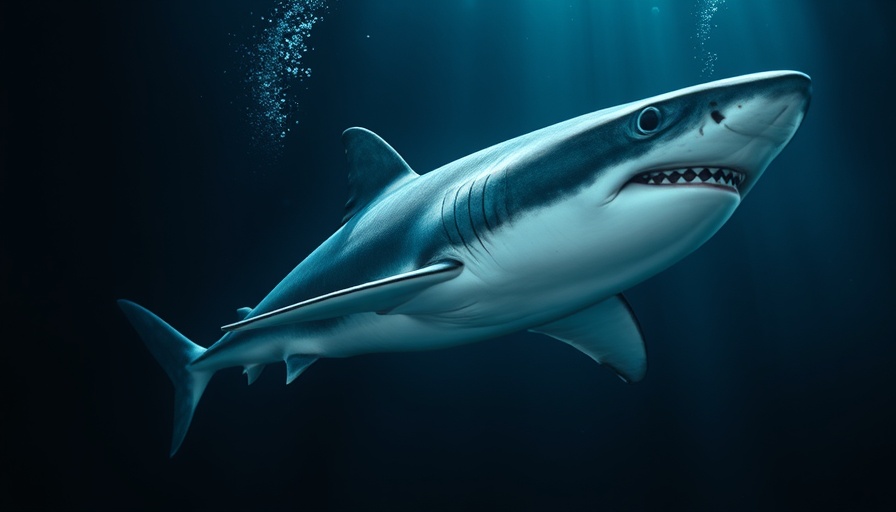
Discover the Thrills of Shark Fest 2025 in Gulf Shores
Get ready to make a splash this summer as Gulf State Park transforms into a marine education haven during the highly anticipated Shark Fest, taking place from June 26 to June 28. This exhilarating three-day event promises to engage shark enthusiasts and families alike with a series of interactive exhibits, knowledge-sharing talks, and heart-pounding encounters with some of the ocean's most fascinating creatures.
What to Expect: An Adventure for All Ages
This year, Shark Fest offers a variety of activities designed for thrill-seekers and oceanic learners. Imagine standing inches away as marine experts conduct live shark dissections that reveal the anatomy of these majestic predators. Or dive into hands-on learning at the stingray touch tank, where children and adults alike can experience the feel of these smooth-skinned sea creatures.
Highlighting the diversity of shark species that inhabit the Gulf Coast waters, attendees will have the opportunity to view shark teeth, bones, and engage with multimedia displays aimed at educating the public about marine conservation efforts. Parents can take comfort that each activity is not just entertaining but also a valuable educational experience, reinforcing the importance of understanding our oceanic ecosystems.
Family-Friendly Fun: More Than Just Sharks
Shark Fest isn’t just for marine biologists in the making; it offers fun for the whole family. Kids can get involved with activities such as crafts and face painting while parents soak in insightful presentations from marine researchers. The festival culminates in an engaging atmosphere where knowledge about our oceanic friends meets delightful family bonding.
How to Participate: Details You Need
Held at Gulf State Park’s Saltwater Pier, Shark Fest is accessible for everyone. Entry is affordable at just $5, and visitors can rest easy with free parking on site. The event kicks off on Thursday, June 26, from 2 PM to 7 PM, followed by Friday and Saturday sessions from 10 AM to 3 PM. Wristbands are available now, so why wait? You can purchase tickets online or at the event. Just head to Shark Fest 2025 for more information.
Beyond the Shore: The Broader Impact of Shark Education
Shark Fest is a part of a larger trend to educate the public about sharks, particularly during events like Shark Week, which have elevated awareness and appreciation for these top predators. By participating in events like Shark Fest, visitors aren’t just having fun; they're supporting vital conservation messages that help protect shark populations and marine health.
With the challenges facing our oceans—from overfishing to climate change—it is critical that we foster a deeper understanding and respect for the creatures inhabiting their depths. Every discussion, exhibition, and hands-on activity at Shark Fest contributes to a larger movement of conservation awareness.
Join the Shark Fest Movement!
Mark your calendars and prepare for a unique experience that blends education and fun at Gulf State Park's Shark Fest 2025. It's more than an event; it’s an opportunity to connect with our marine life and engage in the important conversations surrounding it. Don’t miss out on this unique educational experience that promises both fun and knowledge for participants of all ages.
 Add Row
Add Row  Add
Add 




Write A Comment